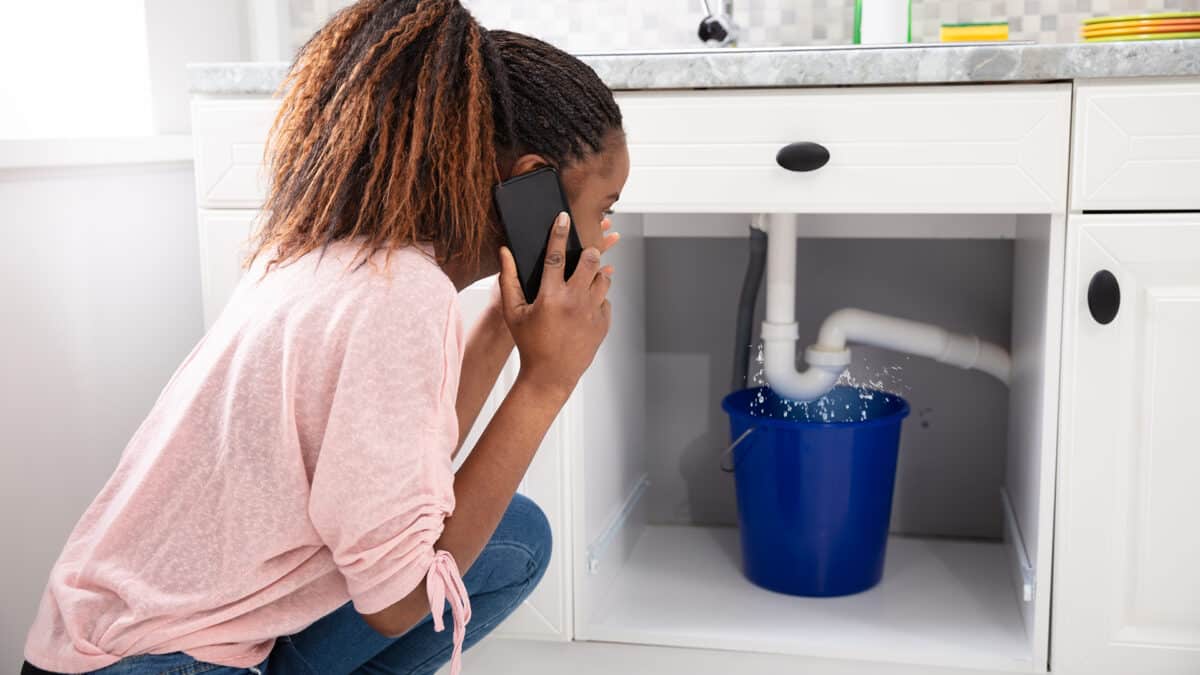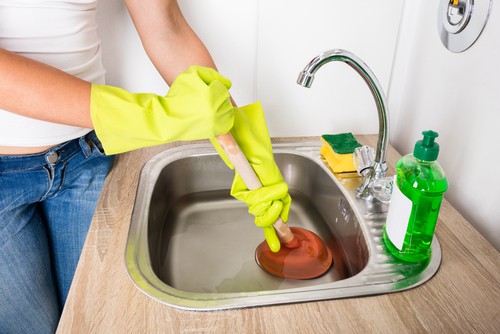Urgent Plumbing Fixes to Use Until Specialist Help Arrives
Urgent Plumbing Fixes to Use Until Specialist Help Arrives
Blog Article
On this page on the next paragraphs you can find additional outstanding help and advice related to Expert Tips for Managing a Plumbing Emergency Until Help Arrives.

Pipes emergencies can strike any time, triggering stress and anxiety and prospective damages to your home. Whether it's a burst pipeline, a clogged drainpipe, or a leaky tap, knowing exactly how to manage the circumstance until an expert plumber shows up can conserve you from additional difficulties. This short article gives vital emergency situation plumbing ideas to help you alleviate damages and restore control during a pipes dilemma.
Turn Off the Water
The initial step in any type of pipes emergency is to turn off the water. For localized problems, such as a dripping faucet or bathroom, switch off the shutoff near the fixture. In the case of a significant leakage or burst pipe, situate your home's main water shut-off shutoff and transform it off immediately. Understanding the area of these shutoffs beforehand can save useful time throughout an emergency.
Shut Off Your Water Heater
In specific emergency situations, such as a ruptured pipe, it's a good idea to turn off your hot water heater. This protects against getting too hot or damages to the unit when water stops streaming. Shut off the power supply to the hot water heater (electrical or gas) and allow it cool to avoid potential risks.
Temporarily Stop a Burst Pipe
A burst pipe can result in considerable water damages in minutes. To mitigate the issue:
Call a specialist plumbing professional quickly to attend to the issue permanently.
Have an Emergency Plumbing Kit
Prepare a basic pipes emergency situation set to deal with minor issues effectively. Your kit needs to consist of:
Having these tools available can make a significant distinction in your capacity to handle emergencies.
Unclog Drains Securely.
A clogged up drainpipe can be an aggravating and messy concern. Right here's how to tackle it:.
If these methods do not work, stay clear of utilizing excessive pressure, as it may get worse the blockage.
Handle Overflowing Toilets.
An overruning bathroom can create immediate turmoil. Here's what you ought to do:.
Address Tiny Leakages with Short-term Repairs.
Tiny leakages can quickly end up being considerable troubles if left unchecked. Use these momentary solutions till professional assistance gets here:.
While these solutions aren't irreversible, they can help minimize water loss and damage.
Handle Frozen Pipeline Carefully.
In colder climates, icy pipelines are an usual emergency situation. If you suspect a frozen pipeline:.
Know When to Call an Expert.
While quick fixes can assist temporarily, certain plumbing concerns call for instant expert attention. Call a plumbing if:.
Quickly getting in touch with a professional makes certain the problem is fixed correctly and protects against additional problems.
Prevent More Damage.
Taking quick activity to reduce damage can conserve you time and money in the long run. Right here's how:.
Final thought.
Pipes emergencies can be frustrating, however with the right understanding and tools, you can handle the situation successfully until assistance arrives. By shutting off the water supply, attending to small leaks, and making use of short-term solutions, you can reduce damages and keep your home safe. Keep in mind, these tips are short-term remedies; always seek advice from a qualified plumbing to take care of the root cause of the issue. Prep work and quick reasoning are your ideal allies in any plumbing emergency situation.
8 Helpful Tips for Managing Plumbing Emergencies at Home
If your plumbing system hasn’t failed once, wait for it because almost everyone has a story to tell. Sometimes, it could be simple emergencies such as a leaking pipe, a blocked cistern, or even a big burst pipe. In situations like this, you need to have some handy tips to save you some money and from possible damages.
Take care of minor issues early.
Sometimes, you could have avoided an emergency by taking proactive measures while it was still early. Some major plumbing emergencies can be a result of an ignored minor issue. We recommend that you have items like plumbing tapes and other related items. A plumbing tape can allow you to manage minor leaks before the plumber arrives.
Cut off the water supply.
This tip is essential in almost any type of leakage problem. For problems like minor leakages in the toilet or kitchen, turn off the supply that takes water to the affected pipes. If the leakage is a major pipe, you must shut off the supply valve to the entire building. This will help you avoid flooding your home and neighbors if you share a flat.
Know your plumbing system
Folks typically move into a new apartment without understanding the water supply around the building. This can prove disastrous if a water emergency arises and the plumber is far away. The previous tip will prove useless if you don’t practice this one. More importantly, know where your water shut-off valve is located – you’ll need that knowledge to prevent potential home floods.
Have some common handy tools
There are lots of plumbing emergencies that you can handle without hiring a plumber. That’s why you must keep some tools available always. Some tools that you can use to fix simple plumbing emergencies easily include plumbing tapes, screwdrivers, thread seal tapes, plungers, pliers, tape measures, and rubber gloves.
Insulate your pipes from cold
You’ll save yourself from many plumbing expenses if you protect your water pipes from the cold. This is because of the harmful effects that cold weather can have on your pipes. During winter, your pipes can burst from being overly expected to freezing temperatures. So, make sure insulators are there to keep the pipes working correctly.
Avoid practices that will clog your toilet.
Many people indulge in practices that can damage the plumbing system of the entire building. One of these is when they use their toilet to dispose-off garbage. They flush all kinds of things, such as paper towels, bandages, hairs, female sanitary products, etc., down the toilet. This will block your toilet in the long run, incurring unnecessary expenditures. Dump such waste in the trash instead.
Check your dials regularly.
Sometimes, there could be leakages in your home without noticing them in time. So, constantly monitor your water meter dial. If the dial is reading when there is nobody using water, this is an indicator that there is leaking. Check for leaks immediately. Call a plumber as soon as possible if you can’t find any.
https://www.constructionplacements.com/8-helpful-tips-for-managing-plumbing-emergencies-at-home/

Hopefully you enjoyed our article about Expert Tips for Emergency Plumbing Repairs. Thanks a lot for taking time to read our blog post. Sharing is caring. You won't know, you may just be helping someone out. Many thanks for being here. Don't hesitate to check our site back soon.
Click Here Report this page